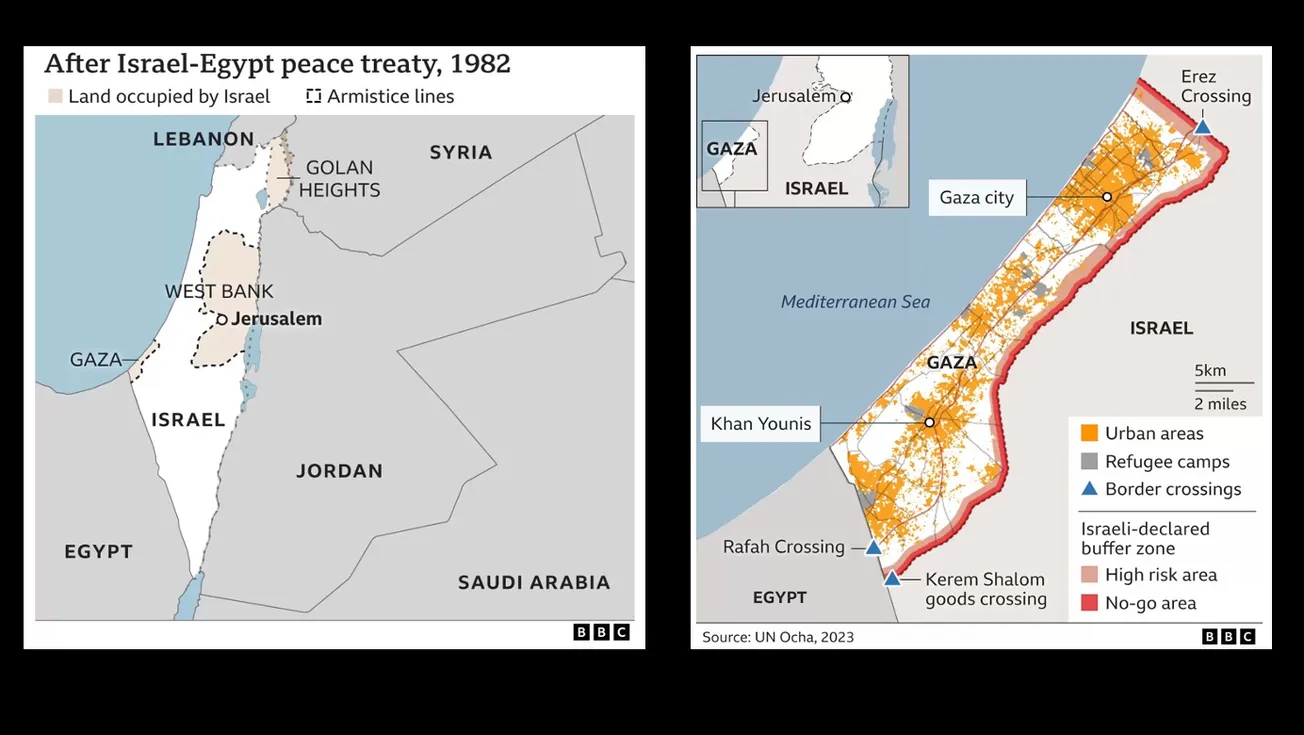For many weeks our news media, in its tireless search for viewers, readers, and advertisers, have competed with each other in shocking us, first with pictures of Israeli men, women, and children brutally killed by Hamas, and then by pictures of destroyed buildings and dead Palestinian men, women, and children brutally killed by Israelis in Gaza.
How are we polarized Americans responding to this brutal war? By taking sides, ignoring history, and oversimplifying the issues. It is the American way. We must pick an enemy, gather with signs (and sometimes more deadly weapons), and scream at each other.
This is unfortunate because this Arab-Israeli conflict has a very long and mixed history. Indeed, the first serious Palestinian uprising against Israeli settlers was in 1929, nineteen years before the state of Israel existed.
But Americans today are in no mood to study the complicated historical roots of the current conflict. I was delighted therefore to see columnist Nicholas Kristof (NYTimes, 11-15-23) try to sort out some of our hasty judgments in an essay entitled “What We Get Wrong About Israel and Gaza.”
Kristof correctly notes three myths that people believe about this Middle Eastern conflict. The first is that “there is right on one side and wrong on the other, even if people disagree about which is which.” Modern war inevitably involves the killing of civilians. We did it during World War II. Also, self-protection requires political control, and that, in our age, requires an independent state.
Palestinians deserve a state. Palestine is in fact a geographic area, not a country, which has been ruled by other larger empires. Its inhabitants don’t, however, need rule by a brutal power-hungry organization like Hamas, dedicated to eliminating Israel, even if it costs the death of its own people.
Israelis need a state as well, mainly because, stateless since ancient times, they suffered centuries of persecution in Europe culminating in the 20th century Holocaust. They don’t, however, need self-serving right-wing extremist Benjamin Netanyahu as their leader. The Israeli protests against Netanyahu before October 7 prove you can oppose his government without being antisemitic.
Kristof’s second myth is the idea “that Palestinians can be put off indefinitely, strung along by Israel, the United States, and other countries.” This refers to Netanyahu’s plan to postpone talk of a separate Palestinian state in the west bank of the Jordan River and Gaza while encouraging Israelis to build many Jewish settlements in conquered territory. That would allow Israel under Netanyahu to claim that this land should never be returned to any future Palestinian state.
Meanwhile, on the other side, we see the desire of Hamas and other Palestinian hardline extremists to destroy the Jewish state (hence the Palestinian slogan—from “the [Jordan] river to the [Mediterranean] sea,” used to describe Palestine without a Jewish state). During the last forty years, many Palestinians in the areas occupied by Israel have suffered a great deal.
Both sides now seem to favor a “one-state” solution, but they want only “their people” to be in this single, enlarged state. This increases the bitterness on both sides, and that naturally leads to violence, something that both sides blame, with some reason, on the other side.
This mess is complicated by Kristof’s third myth: the excuse for bloodshed made by each side, claiming that “the people on the other side understand only violence.” Each side in this conflict has dehumanized the other in the past and continues to do so in this current phase.
In 1948, after colonial rule of the Middle East ended, the United Nations created an area in Palestine to become a separate Jewish state, which was declared independent and quickly recognized diplomatically by both the United States and Russia. The surrounding Arab states immediately attacked the new state of Israel to eliminate it. Israel defeated the Arab armies and drove 700,000 Palestinians from their homes and lands. Palestinians call this the Nakba, an Arabic word for catastrophe.
Further Arab attempts to conquer Israel in four wars between 1956 and 1982 resulted in Israeli victories and more Palestinians suffering in refugee camps, some for generations. This history helped give rise to Hamas’s brutal attack on October 7, 2023.
Kristof wisely concluded: “Unless you believe in human rights for Jews and for Palestinians, you don’t actually believe in human rights. If you weep only for Israeli children, or only for Palestinian children, you have a problem that goes beyond your tear ducts.”
This is something American protesters on both sides need to remember.
--30--








